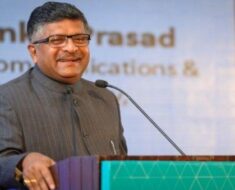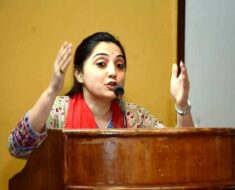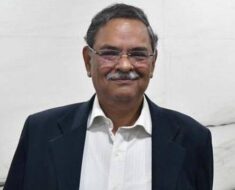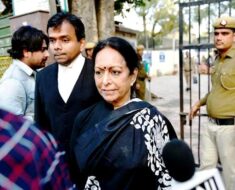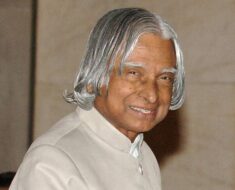Sheikh Hasina Wazed, a prominent figure in Bangladeshi politics, holds the position of Prime Minister. This post delves into her life, career, and significant contributions to Bangladesh.
Biography/Wiki
Sheikh Hasina was born on September 28, 1947, in Tungipara, Gopalganj District, East Bengal (now Bangladesh). Her education began at Ajimpur Girls’ School in Dhaka, followed by graduation from Eden Mohila College, University of Dhaka in 1973.
Even during her student years, Hasina actively participated in mass movements and political activities. She served as vice president of the College Students Union, sharing the stage with Motiya Chowdhury, who later became a cabinet member under Hasina’s leadership. Hasina’s involvement extended to the Bangladesh Chhatra League (BCL), the student wing of the Awami League.
Her father, Sheikh Mujibur Rahman, the revered “Father of the Nation,” played a pivotal role in Bangladesh’s independence. While a university student, Hasina acted as her imprisoned father’s political liaison during his time incarcerated by the Pakistani government. The turbulent political climate of 1971 forced her into temporary exile.
The tragic assassination of her family in 1975, while she was abroad, led to a six-year exile in New Delhi, India. Returning to Bangladesh on May 17, 1981, she dedicated herself to restoring democracy.
Family, Husband & Caste
Born into a Sunni Muslim family, Hasina is the eldest of five children, including three brothers (Sheikh Kamal, Sheikh Jamal, and Sheikh Rasel) and one sister (Sheikh Rehana). The 1975 coup d’état claimed the lives of her father, mother, and brothers.
In 1968, she married M.A. Wazed Miah, a renowned Bangladeshi nuclear scientist. They had two children: Sajeeb Wazed Joy, a businessman and politician; and Saima Wazed Hossain, an autism activist. Miah passed away in 2009.
Career
Hasina’s political career began with her election as the leader of the Awami League Party in 1981. She spearheaded a 15-party coalition against General Hossain Mohammad Ershad’s martial law, facing house arrest multiple times for her outspoken opposition.
Her political journey involved numerous challenges. In the 1991 elections, her party emerged as the largest opposition. After several election cycles, she became Prime Minister in 1996, holding the office until 2001. Her tenure saw the signing of crucial treaties like the Ganges Water Sharing Treaty and the Chittagong Hill Tracts Peace Pact.
Following periods in opposition and imprisonment on various charges, she returned to power in 2009, winning a two-thirds majority. Her subsequent terms witnessed a consolidation of her power and significant political maneuvering. In 2024, she stepped down amid unrest, sparking further controversy.
Net Worth
As of 2017, Sheikh Hasina’s net worth was estimated at ?100 crore.
Awards & Honors
Throughout her career, Sheikh Hasina has received numerous accolades recognizing her political contributions and humanitarian efforts. Some notable awards include:
- Mother Teresa Award (1998)
- UNESCO Houphouet-Boigny Peace Prize (1998)
- Indira Gandhi Prize (2009)
- UNESCO Peace Tree Award (2014)
- UN Environment Prize (2015)
- Global Women’s Leadership Award (2018)
She also received several honorary doctorates from prestigious universities worldwide.
Controversies
Sheikh Hasina’s career has been marked by several controversies, including accusations of corruption, extortion, and murder. While some charges have been dismissed, others remain a subject of debate and ongoing legal proceedings. Recent events surrounding her resignation and departure from Bangladesh added further layers to the existing controversies.
| Year | Controversy | Outcome |
|---|---|---|
| 2007 | Extortion and Murder Charges | Charges filed, later dismissed in some cases |
| 2017 | Padma Bridge graft scandal | Charges dismissed |
| 2024 | Multiple murder charges after resignation | Ongoing investigation |
| 2025 | Charges related to forced disappearances | Ongoing investigation |
Facts
Several key facts highlight significant aspects of Sheikh Hasina’s life and work:
- She survived an assassination attempt in 2004.
- She established the Bangabandhu Sheikh Mujibur Rahman Memorial Museum.
- She chairs the Father of the Nation Bangabandhu Sheikh Mujibur Rahman Memorial Trust.
- She is an author, having penned several books on political and social issues.
- She was ranked among Forbes’ 100 Most Powerful Women in 2018.
“`


